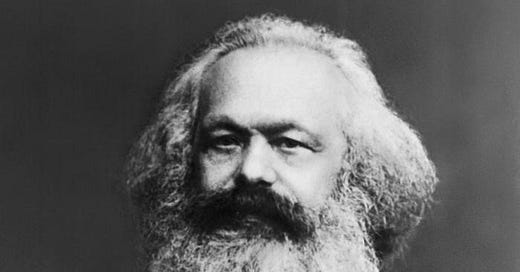Yesterday marked the 141st anniversary of the death of Karl Marx. The great German philosopher died on March 14, 1883.
In my view, Marx formulated a critique of political-economy and an analysis of human history from the vantage point of the emerging industrial working class in nineteenth century Western Europe. His work provided not only an important breakthrough in understanding by virtue of its focus on the centrality of class divisions and class interests in driving the development of human societies. It also, in taking the vantage point of the underdog class, pointed to a new modern epistemology, in which the desire for understanding begins with appreciation of the natural existence of diverse viewpoints. His work thus provided the foundation for important advances in human understanding of political-economic systems and human societies.
Marx’s work implied the possibility for Western academic institutions to forge a modern ep…



